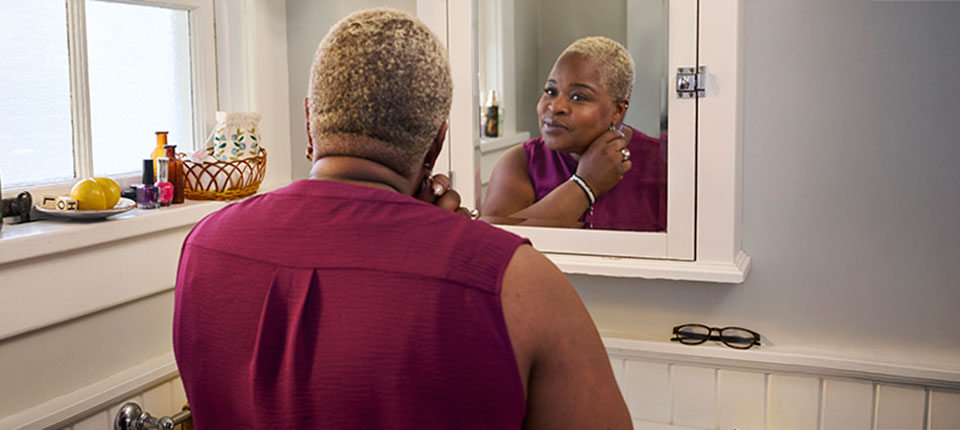“I have (diabetes) under control,” he said. “I’m probably going to live to a ripe old age, and whatever happens won’t be because of diabetes.” If we all could see the world through the eyes of the millions of people living with diabetes, it would be an eye-opener, for sure. And that can have a […]


“I have (diabetes) under control,” he said. “I’m probably going to live to a ripe old age, and whatever happens won’t be because of diabetes.”
If we all could see the world through the eyes of the millions of people living with diabetes, it would be an eye-opener, for sure.
And that can have a real impact on a person’s health.
Even if you’ve never seen or experienced this bias at play, its impact is very real. Consider Jonathan Reyman’s stressful story about simply trying to administer a dose of insulin.
References
Fortunately for her, “as I opened up, they understood more over time.”
One in six American adults and hundreds of millions of people around the world who live with diabetes face barriers to receiving care1.
Let’s Rise Above the Bias
We’d see that living with diabetes requires daily health management — and can come with a daily barrage of misconceptions.
We know that 70% of people with diabetes feel that supportive comments boost their motivation to manage their health1. With that in mind, using person-first language, avoiding judgement and blame, celebrating small wins and asking open-ended questions are all things we can do daily to help diminish the impacts of diabetes bias.
“A lot of these interactions, I think, are around food,” Culver-Henkel said. “The real issue, I find, is about weight and not the disease.”
So how can we help support those living with diabetes in our community? There are little things we can do every day for our friends’ and families’ health.
Reyman, meanwhile, can focus on what really matters: Enjoying life and living it on his terms.
When Jenny Geraci received her diabetes diagnosis, it shook her to her core. She remembers staying home all day just to process the news. But when she tried to explain that to the people in her life, they reacted as if nothing had changed at all.
- Nearly 70% believe there is stigma associated with their condition.
- Almost 25% have avoided sharing their diagnosis with family or friends out of embarrassment or concern.
- Forty percent have skipped or missed a doctor’s appointment due to shame.
1 Data on file. Research conducted by Savanta on behalf of Abbott between May and August 2024 was executed in three distinct phases among people with diabetes across Canada, France, Germany, Ireland, Italy, Japan, the U.K., and the U.S.
Sometimes what isn’t said about diabetes can hurt, too.
A lot of things we commonly hear about diabetes may be based on misconceptions or stereotypes. In fact, nearly 40% of people living with diabetes will tell you1 — this chronic condition is not taken seriously enough.
As courageous as Geraci was, many others in her situation don’t open up — too concerned about what family or friends might think of them.
- It’s not anyone’s “fault” for living with diabetes.
- Diabetes is not contagious.
- Not everyone living with diabetes uses or needs insulin.
- Plenty of people living with diabetes are athletes or have active lifestyles.
- People living with diabetes can eat sugar.
What Can We Do to Make a Difference?
Our new initiative, “Above the Bias,” is all about supporting people living with diabetes and clearing away some of the roadblocks they face. We kicked things off with the release of a new film with the same name, putting viewers in the shoes of someone trying to manage their condition.
“One time I had my needle out on a bathroom sink and someone asked me if I was ‘shooting up,’ ” he said. “I felt annoyed. I was trying to be discreet.” By sharing more knowledge and more experiences — more broadly — we can help reduce stigma, create understanding and empower those living with diabetes to access the care they need.
We can’t debunk every myth about diabetes, but we can name some of them in hopes of starting a positive dialogue.
“It was a life-changing thing for me, and it was brushed off,” she said. “I felt like no one cared about my personal medical challenge.”
To that last point, Dawn Culver-Henkel — who, like Jenny, lives with Type 2 diabetes and uses Abbott’s FreeStyle Libre continuous glucose monitoring system — said any discussion of diet can quickly turn into a discouraging one.
As a leader in diabetes health tech, Abbott has been fostering these conversations for more than a decade. Now, we feel it’s time to turn up the volume.
Together, we’ll address what we continue to hear from people living with diabetes1:
Correcting Common Myths About Diabetes














